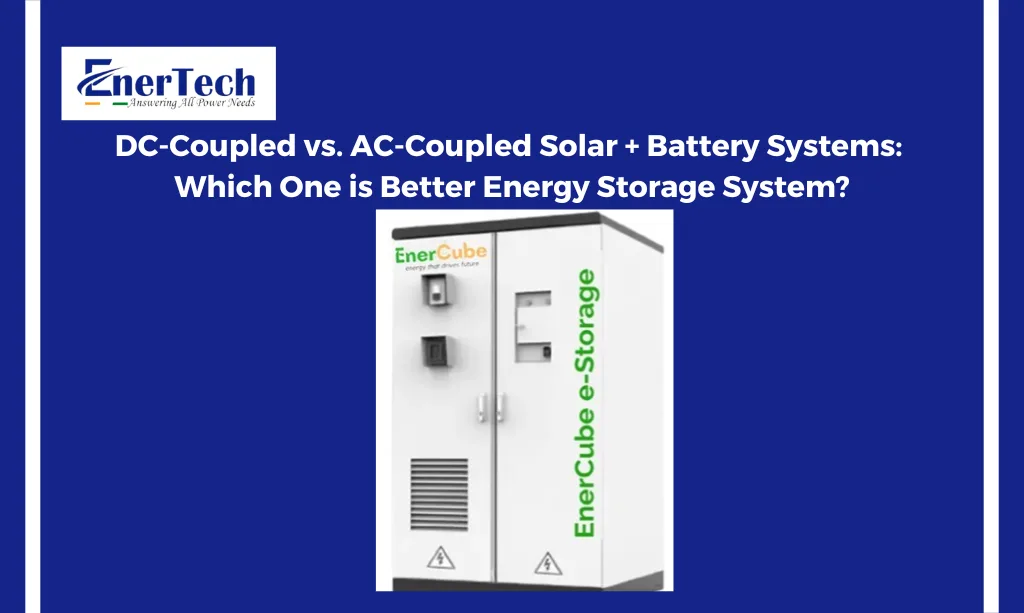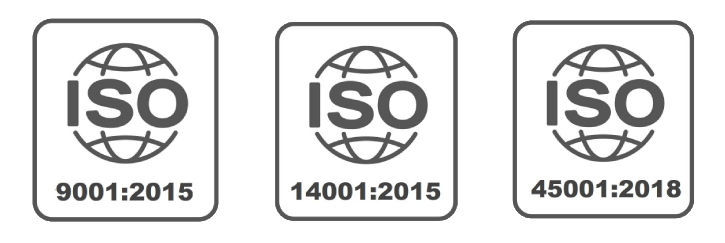Solar energy and Battery Energy Storage Systems (BESS) are considered a significant step toward achieving reliable power supply and energy independence.
However, storage systems come in different types. Their capabilities, efficiency, and utility vary with the solar energy systems they combine with.
For instance, while battery systems team up with DC-coupled solar energy systems, others do so with AC-coupled systems.
Consumers often find themselves in a dilemma while choosing between both, wondering which is a better alternative.
The choice between both usually depends on the cost, system design, efficiency, and compatibility with existing solar installations.
If you’ve been caught up in a similar situation, here’s some help.
This blog compares DC-coupled + battery systems and AC-coupled + battery systems to help you get closer to making the right choice.
What is a DC-Coupled + Battery System?
It is an energy storage system and solar power system wherein the solar panels, battery storage, and inverter operate on a direct current (DC) before converting to alternating current (AC) to power appliances, homes, and businesses. The system works as follows.
- The PV panels generate electricity in the DC form.
- A charge controller or a hybrid inverter with an inherent DC coupling regulates the power and directs it to the battery for storage.
- The battery stores excess power without an instant conversion to AC, enhancing efficiency.
- When required for a home, the stored DC power is converted into AC via an inverter.
What is an AC-Coupled + Battery System?
This also is an energy storage system in which the battery and solar inverter operate independently but are connected via AC power, instead of direct DC coupling.
- The system offers higher flexibility while integrating batteries into the current solar power installations. Here’s how it works.
- The solar panels produce DC electricity.
- A solar inverter converts DC into AC to power homes and businesses.
- A separate battery inverter converts AC from the solar energy system or grid and transforms it back into DC to charge the battery.
- Now, during power outages or at night, when required, the battery inverter transforms the stored DC power back into AC to power businesses and homes.
Both these systems have their unique advantages and disadvantages. Let’s look at both.
Pros and Cons of DC-Coupled + Battery Systems
Advantages of DC-Coupled + Battery Systems
High Efficiency: The system stores energy in DC and converts it into AC only when required, resulting in lesser conversion losses than AC-coupled systems. Besides, the system usually achieves 90-95% round-trip efficiency. On the other hand, AC-coupled systems incur more losses due to multiple conversions.
- Quicker Charging: Charging is often faster and more efficient as energy flows from the solar panels to the battery without AC conversion.
- Reduced Equipment Costs: The system requires fewer inverters as a single hybrid inverter can manage solar panels and battery storage.
- Off-Grid Application: The system is apt for remote locations wherein efficiency and reliable battery storage matter.
Disadvantages of DC-Coupled + Battery Systems
- Less Retrofitting Flexibility: A DC-coupled + battery system doesn’t prove to be the right choice if you already have a grid-tied solar system. It is because in such a situation, you will have to replace the existing inverter with a hybrid one.
- Complex Design and Installation: It requires a specific charge controller to regulate battery charging and prevent overcharging. You will also have to plan the system size more accurately to ensure battery, inverter, and solar compatibility.
- High Voltage Needs: For some, particularly modern lithium-ion batteries, the system requires a higher voltage range. This range might not necessarily align with the solar panel output, requiring extra parts and components.
- Restricted Inverter Power Output: The hybrid inverter handles solar and battery operations. Juggling both these responsibilities affects its power limit, restricting expansion. Besides, some inverters have restrictions on simultaneous loads. This can prove to be a drawback for appliances that require a higher amount of power.
So, given the above, when should you consider using DC-coupled + battery systems?
- While installing a new solar + battery system and when you want optimal efficiency
- While reducing equipment costs
- When you want to prioritize solar-to-battery efficiency
- While living off-grid and in a region that experiences frequent power outages
Pros and Cons of AC-Coupled + Battery Systems
Advantages of AC-Coupled + Battery Systems
- Easy Retrofit: The system is ideal for adding batteries to the existing solar system without requiring significant rewiring.
- Separate Operations: The solar and battery inverters can work separately, enhancing the reliability of the system.
- Backup Power: You can use the system in an off-grid or hybrid system to achieve energy independence.
Disadvantages of AC-Coupled + Battery Systems
- Low Efficiency: The system’s mechanism involves converting power from DC to AC multiple times. This continuous and frequent conversion leads to the loss of some amount of energy.
- High Cost: The system requires a separate inverter for solar and battery storage. This refers to higher equipment and installation costs.
So now, when do you select an AC-coupled + battery system? Here’s when you use it.
- You need to retrofit batteries into existing solar systems
- You have a grid-tied system that needs extra storage capacity
- You require backup power during outages
From the above, you can determine the system you need for your home or business. However, we recommend connecting with us (EnerTech), one of the leading suppliers of BESS, to seek specific advice and guidance on choosing the right system.
While manufacturing feature- and technology-enriched BESS (EnerCube), we also help our clients choose the right systems based on their requirements and circumstances. It helps them optimize power supply and achieve their strategic, and operational goals associated with the use of renewable energy. Some essential features that make it possible, include;
- Peak shaving and load shifting
- Renewable energy integration
- Plug-and-play functionality
- AC multi-layer protection
- Integrated BMS
- Blackout protection
Explore more about EnerCube and email us at sales@enertechups.com to connect with our experts and discuss your needs with them.




